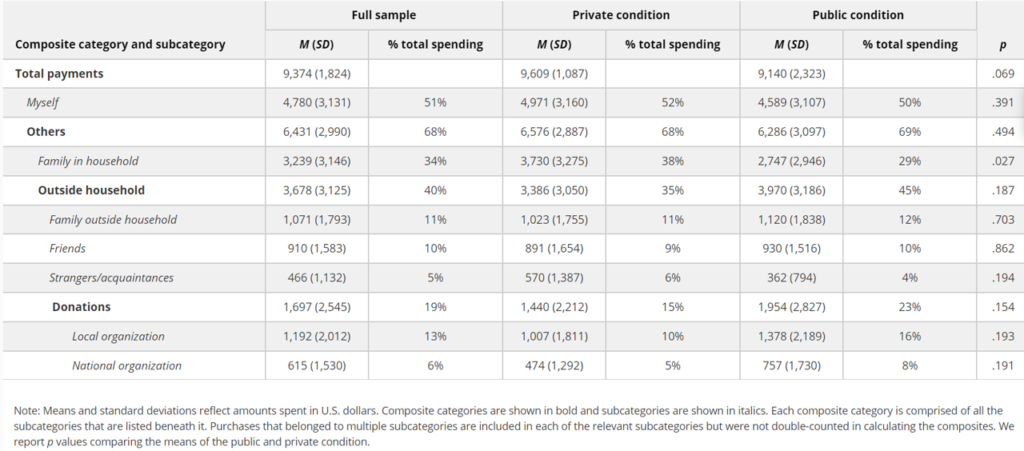The paradigm of homo economicus–a perfectly rational, self-interested person–may have taken a hit based on the findings of a paper by Dwyer et al. (2023). The authors aim to examine how people spend windfall earnings using a randomized experiment.
We took advantage of a rare opportunity to examine generosity among a diverse sample of adults who received a gift of U.S. $10,000 from a pair of wealthy donors, with nearly no strings attached. Two-hundred participants were drawn from three low-income countries (Indonesia, Brazil, and Kenya) and four high-income countries (Australia, Canada, the United Kingdom, and the United States) as part of a preregistered study. On average, participants spent over $6,400 on purchases that benefited others, including nearly $1,700 on donations to charity, suggesting that humans exhibit remarkable generosity even when the stakes are high.
One rationale for this behavior was that it was status enhancing. That may not be the case.
To address whether generosity was driven by reputational concerns, we asked half the participants to share their spending decisions publicly on Twitter, whereas the other half were asked to keep their spending private. Generous spending was similar between the groups, in contrast to our preregistered hypothesis that enhancing reputational concerns would increase generosity.
This finding, however, does not fully address that reputational concerns are not at play here. While one’s reputation on Twitter may not be meaningful, one’s reputation among the people who received money and among one’s peers clearly does play a role. The authors claim that the $1,700 going purely to charity did not change, however there was a ~$500 difference (donations private = $1,440 vs. donations posted on Twitter = $1954, p=0.154). While not statistically significant, this is about a 30% increase in donations. is also impressive in showing that people want to share their wealth. The authors found that family had the largest impact on spending decisions but in-person friends and social media played a relatively similar role in decision-making among the randomized groups who posted their donations on Twitter.
The authors do note that “…participants were aware that they were part of an experiment in which they would report their spending choices…[which] may have spurred them to spend money (or report spending it) in socially desirable ways.”

You can read the full paper here.